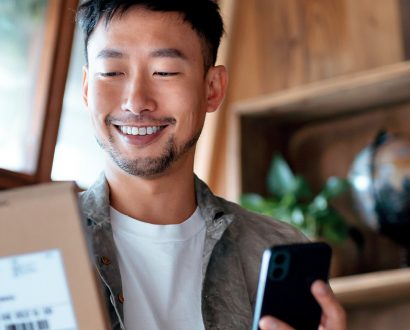Though it’s a recent phenomenon, it’s clear that influencer marketing is here to stay. A 2017 Linqia study found 86% of marketers used it in 2017, 92% of whom found it to be effective.
Only a tiny minority were planning on reducing their influencer marketing budgets, and 51% believed it out-performed brand-created content.
But what is influencer marketing? And why should you be using it?
The strategy employs influential individuals, organising campaigns around them to connect the influencer’s fan base with a company’s products. These days, it’s usually done through social media.
Anthony Svirskis, founder and CEO of influencer marketing agency Tribe (and The CEO Magazine’s 2017 Start-Up Executive of the Year winner), says trust is the biggest advantage for those working with influencers.
“Influencers have spent years cultivating audiences through content and conversation and these audiences seek their opinion and inspiration. That trust of recommendation is extremely valuable when marketers authentically tap into it.”
To avoid abusing that trust, Anthony says content needs to remain authentic. Rather than forcing a partnership between an influencer and a product, brands should connect with the influential customers they already have.
That way, the influencer can create quality content, coming from a place of passion and brand loyalty. After all, consumers are smart enough to recognise insincerity.
Instagram or YouTube?
There’s also a clear choice when it comes to viable platforms. Within the social media sphere, Instagram dominates. Over the past few years, the number of brands using the site has skyrocketed.
From 2016 to 2017, the number of business profiles on Instagram shot up from 1.5 million to 25 million. Within a similar timeframe, active advertisers increased tenfold, up to two million.
“Instagram is the best bang for buck in regard to organic reach and it is the platform of choose for most marketers tapping into that highly visual element,” Anthony explains.
“YouTube has significant prominence and is great for product demonstrations and reviews.”
Is influencer marketing regulated?
Now that influencer marketing is settling into the mainstream, the sector is becoming more regulated. It’s now treated as conventional advertising, meaning it’s held to standards of honesty. Federal Trade Commission guidelines require full disclosure of sponsored content.
A recent study suggested that familiarity with influencer marketing regulation is still low.
Meanwhile, the industry appears even less prepared for fraud, bots and fake followers, with only 25% of marketers having a system to defend against this.
However, the influencer marketing industry is adjusting to these changes, according to Anthony.
“Marketers should always be careful around audience integrity, payment and content approval processes. However, given the industry is maturing rapidly, there’s plenty of agencies and platforms that now manage the challenges to deliver highly effective campaigns.”
Who can benefit from adopting an influencer marketing strategy?
Anthony believes influencer marketing can be suitable for businesses of any size; for big brands, it’s a useful complement to above-the-line strategies, while it can help smaller brands build awareness.
But ultimately care must be taken to ensure it’s right for your company.
“Influencers attract their following through creativity and inspiration, so it’s important the brands they talk about this are native to this theme,” Anthony says.








We agree that influencer marketing is here to stay; 90% of brands ran an influencer campaign last year and plan to run another this year. But, there needs to be a greater emphasis placed on clear campaign objectives, as well as accurate, verified measurements. Setting clearly defined objectives is key for a successful influencer campaign; Instagram is great for engagement, but that doesn’t always translate to conversion. And while many brand’s are concerned about influencer fraud, we took the step last week to raise the standards for the industry by declaring our dedication to cleaning up the influencer mess, so to speak.